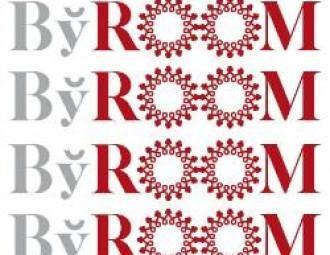Bў-ROOM: Fair of projects and initiatives of the Belarusian civil society

Everyone will be able to know more about initiatives, projects and organizations of the civil society in Belarus on 28th of November in Vilnius.
Petras Austrevicius, Vice-Speaker of the Lithuanian Parliament, will officially open Bў-Room*. Fair will run for the whole day accompanied with Belarus Press Photos exhibition, informal roundtable discussions and a multimedia space featuring Belarusian films and other in-country work. There will also be a press room for journalists to work from and space for informal meetings over Belarusian cuisine. Thematic sections: education, research, culture, human rights, gender, environment and grassroots activism will talk about the important and interesting projects and initiatives.
The research section will consist of recent researches presentations that were made by think tanks, research groups during past year.
Centre for European Transformation (http://cet.eurobelarus.info) will present two studies: "The role and place of civil society in the EU system of donor assistance for Belarus" and "Potential for interaction of environmental organizations to address common challenges".
The Institute of Political Studies Political Sphere ((www.palityka.org)) will deliver results of their workon topics“Belarus in the Eastern Partnership Region (1992-2012). Strategy of international relations. Political and economic role in the region” and “Local Elections and Structure of Regional Elite in Belarus (1999-2012)”.
Public campaign «Budzma» (http://budzma.by/), project «Thinking Aloud» (http://eurobelarus.info/video/mysli/), on-line project «Belarusian Oral History Archive» (www.nashapamiac.org) will show series of videos and short movies, and Flying University (http://wp.fly-uni.org ) introduceinnovativeforms of educationand thinkingin Belarus.
Participants andvisitors of Bў-Room will also be ableto take partin the round table discussion "Discrimination and inequality in Belarus: How far can go equality policies in the situation of limited fundamental rights?" where the report “Half an Hour to Spring: Addressing Discrimination and Inequality in Belarus” will be presented. This report, which is prepared by The Equal Rights Trust (www.equalrightstrust.org), is the first ever comprehensive account of discrimination and inequalities on all grounds and in all areas of life in Belarus. It is based on extensive field research, interviews and focus groups, and rigorous analysis of legislation and policies, and makes a set of detailed recommendations to the Belarusian authorities on the necessary reforms to law, policy and practice on equality and non-discrimination.
Next lunch hour expert roundtable would be on topic “Belarus and the EU: Is There a Chance to Break the Vicious Circle?” where participants will look for ways to break the vicious circle in the EU - Belarus relations. They will analyse the lessons from the previous engagement/sanctions cycles and work out recommendations on how to establish a positive agenda in the EU-Belarus relations.
Round table on "How to promote human rightsin Belarus?" which is organized by the Barys Zvozskau Belarusian Human Rights House would be part of ByRoom event on 29th of November.
Bў-ROOM is open to all who are interested in the activities of civil society organizations, the Eastern Partnership and Belarus.
* Bў-ROOM is a creative space organized by civil society activists of Belarus as a side-event of the Eastern Partnership Summit in Vilnius on 28-29 November 2013. Follow us on Facebook (https://www.facebook.com/pages/ByRoom/385480531585907)
Please register by sending an email to [email protected]
Date: November 28 (10:00 – 20:00) and November 29 (1:30-3:30)
Venue: Novotel Hotel, Gedimino pr. 16, Vilnius, Lithuania
Bў-ROOM organizers: Belarus Press Photo, European Humanities University, International Consortium “EuroBelarus”, Euroradio, Belarusian Human Rights House in Vilnius, ByWatch.
Here you can read the program in English.
-
03.01
-
07.10
-
22.09
-
17.08
-
12.08
-
30.09



























